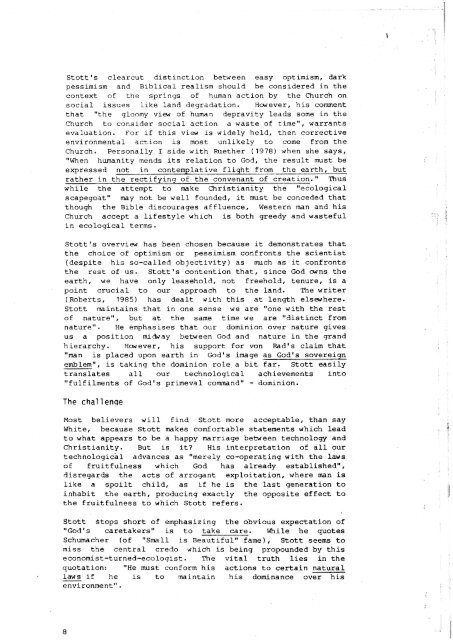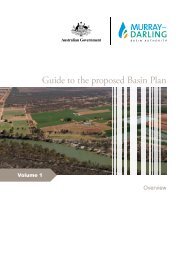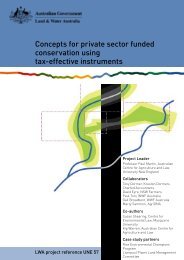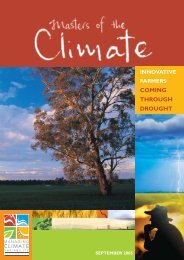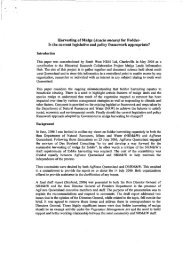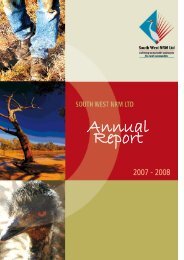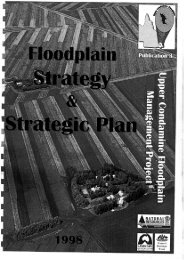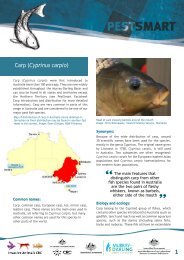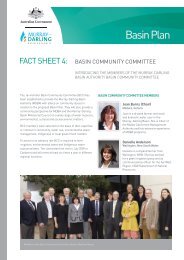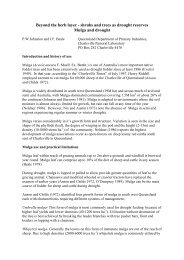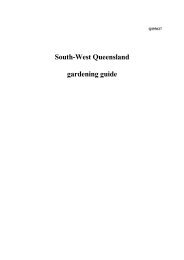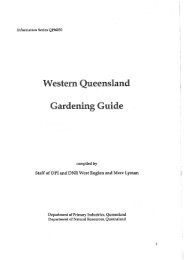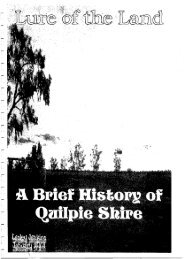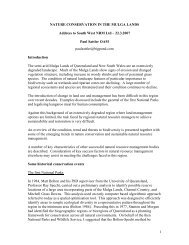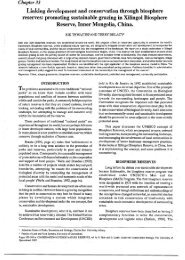soil-conservation-people-religion-and-land.pdf - South West NRM
soil-conservation-people-religion-and-land.pdf - South West NRM
soil-conservation-people-religion-and-land.pdf - South West NRM
You also want an ePaper? Increase the reach of your titles
YUMPU automatically turns print PDFs into web optimized ePapers that Google loves.
Stott's clearcut distinction between easy optimism, dark<br />
pessimism <strong>and</strong> Biblical realism should be considered in the<br />
context of the springs of human action by the Church on<br />
social issues Like l<strong>and</strong> degradation. Hawever, his comment<br />
that "the gloomy view of human depravity leads some in the<br />
Church to consider social action a waste of time", warrants<br />
evaluation. For if this view is widely held, then corrective<br />
environmental action is most unlikely to come from the<br />
Church. Personally I side with Ruether ( 1978) when she says,<br />
"When humanity mends its relation to God, the result must be<br />
expressed not in contemplative flight from the earth, but<br />
rather in the rectifying of the convenant of creation." Thus<br />
while the attempt to make Christianity the "ecological<br />
scapegoat1' may not be well founded, it must be conceded that<br />
though the Bible discourages affluence, <strong>West</strong>ern man <strong>and</strong> his<br />
Church accept a lifestyle which is both greedy <strong>and</strong> wasteful<br />
in ecological terms.<br />
Stottls overview has been chosen because it demonstrates that<br />
the choice of optimism or pessimism confronts the scientist<br />
(despite his so-called objectivity) as much as it confronts<br />
the rest of us. Stott 's contention that, since God wns the<br />
earth, we have only leasehold, not freehold, tenure, is a<br />
point crucial to our approach to the l<strong>and</strong>. The writer<br />
(Roberts, 1985) has dealt with this at length elsewhere.<br />
Stott maintains that in one sense we are "one with the rest<br />
of nature", but at the same time we are "distinct from<br />
nature". He emphasises that our dominion over nature gives<br />
us a position midway between God <strong>and</strong> nature in the gr<strong>and</strong><br />
hierarchy. Hawever, his support for von Rad's claim that<br />
- -<br />
"man is placed upon earth in God's image as God's sovereign<br />
emblem", is taking the dominion role a bit far. Stott easily<br />
translates all our technological achievements into<br />
"fulfilments of God's primeval comm<strong>and</strong>" - dominion.<br />
The chal 1 enge<br />
Most believers will find Stott more acceptable, than say<br />
White, because Stott makes comfortable statements which lead<br />
to what appears to be a happy marriage between technology <strong>and</strong><br />
Christianity. But is it? His interpretation of all our<br />
t ethnological advances as "merely co-operat ing with the laws<br />
of fruitfulness which God has already established",<br />
disregards the acts of arrogant exploitation, where man is<br />
like a spoilt child, as if he is the last generation to<br />
inhabit the earth, producing exactly the opposite effect to<br />
the fruitfulness to which Stott refers.<br />
Stott stops short of emphasizing the obvious expectation - of<br />
"God's caretakers1' is to take care. While he quotes<br />
Schumacher (of "Small is Beautiful" fame), Stott seems to<br />
miss the central credo which is being propounded by this<br />
economist-turned-ecologist . The vital truth lies in the<br />
quotation: "He must conform his actions to certain natural<br />
laws if he is to maintain his dominance over his<br />
environment".


